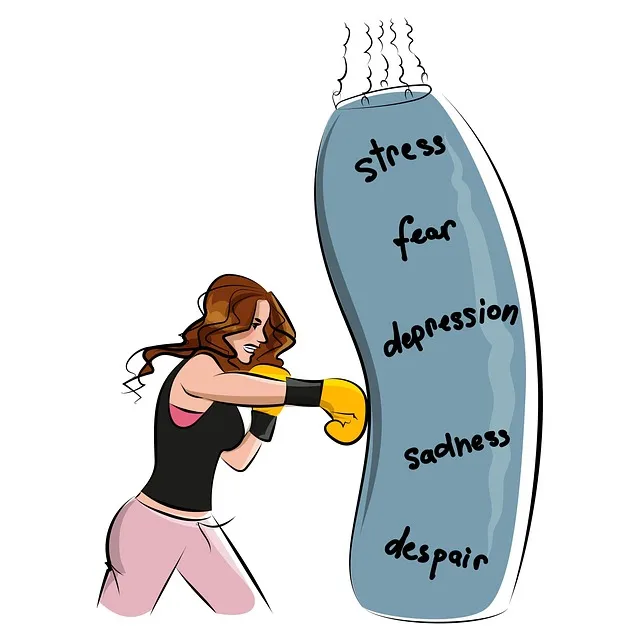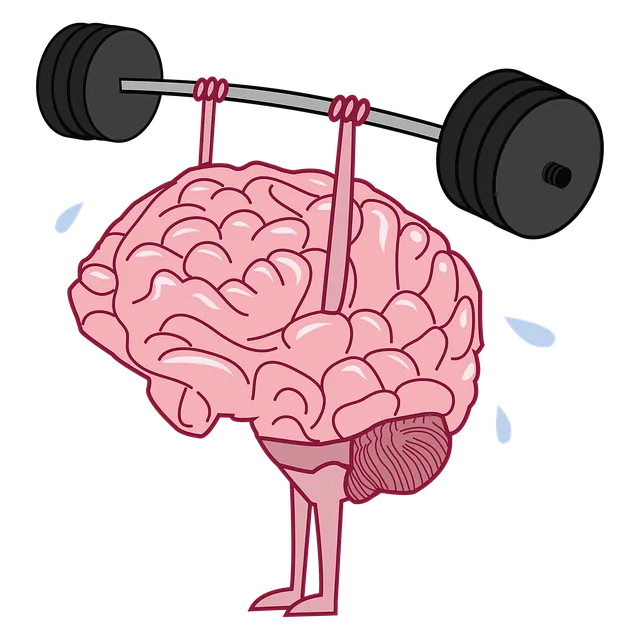The Kaiser Permanente mental health center in Lone Tree offers a holistic approach to mental well-being, focusing on practical coping skills beyond traditional therapy. They emphasize understanding stress triggers through self-awareness and risk assessment for both clients and professionals. Their Trauma Support Services promote resilience building strategies for lasting mental wellness. Mindfulness practices, such as deep breathing and meditation, are encouraged to manage stress and difficult emotions. Additionally, maintaining healthy habits like proper nutrition, regular exercise, adequate sleep, and limited screen time are key components of their coping strategy promotion. Through their Community Outreach Program, they aim to make mental health support accessible to all.
At Kaiser Permanente Lone Tree, we believe in empowering individuals with robust coping skills as a cornerstone of their mental well-being. This comprehensive guide delves into effective strategies tailored by our mental health experts specifically for our center’s clients. From identifying personal stressors to cultivating resilience and adopting healthy habits, we explore practical tools to navigate life’s challenges. Discover how these techniques, honed at our leading mental health center, can enhance your overall well-being and promote a balanced lifestyle.
- Understanding Coping Skills: A Foundation for Mental Well-being at Kaiser Permanente Lone Tree
- Identifying Personal Stressors and Triggers
- Building Resilience: Strategies for Overcoming Challenges
- Mindfulness and Relaxation Techniques to Soothe the Mind
- Healthy Habits for Effective Coping: Nutrition, Exercise, and Sleep
Understanding Coping Skills: A Foundation for Mental Well-being at Kaiser Permanente Lone Tree

At Kaiser Permanente Lone Tree, understanding coping skills is seen as a cornerstone for achieving and maintaining mental well-being. As a leading mental health center in the community, our approach goes beyond traditional therapy sessions. We emphasize the importance of equipping individuals with practical tools to navigate life’s challenges effectively. This involves incorporating various techniques such as self-awareness exercises, mindfulness practices, and emotional healing processes tailored to each person’s unique needs.
Through our comprehensive Community Outreach Program Implementation, we strive to make mental health support accessible to all. This initiative focuses on educating the community about coping skills, fostering a culture of open dialogue around mental well-being, and providing resources that promote self-care. By combining specialized care with community engagement, Kaiser Permanente Lone Tree aims to create a supportive environment where individuals can build resilience, develop effective coping strategies, and thrive in their personal journeys towards better mental health.
Identifying Personal Stressors and Triggers

Understanding what triggers your stress is a crucial step in coping skills development. The Kaiser Permanente mental health center in Lone Tree emphasizes that identifying personal stressors and triggers is key to managing emotional well-being. This process involves self-reflection and recognizing situations, people, or activities that consistently cause you anxiety or distress. It could be work-related pressures, financial concerns, relationship issues, or even specific environmental factors like noise or crowds. Once these triggers are identified, individuals can begin to devise strategies to either avoid them or cope more effectively.
The Kaiser Permanente center also highlights the importance of risk assessment for mental health professionals in helping clients manage their emotional well-being promotion techniques. By understanding their own potential triggers and implementing depression prevention measures, mental health professionals can provide better support to their clients. This holistic approach ensures that both the therapist and the individual seeking help are equipped with the tools needed to navigate and overcome personal stressors together.
Building Resilience: Strategies for Overcoming Challenges

At the Kaiser Permanente mental health center Lone Tree, we recognize that building resilience is a key component in coping with life’s challenges. Our Trauma Support Services are designed to empower individuals by equipping them with effective Resilience Building strategies tailored to their unique experiences. Through these programs, we offer more than just a temporary fix; our goal is to foster lasting mental wellness.
The journey towards resilience begins with acknowledging that setbacks are part of life. Our Mental Wellness Coaching Programs Development encourages individuals to view challenges as opportunities for growth and learning. By adopting coping mechanisms and cultivating a positive mindset, one can navigate through difficult situations with greater ease. Through these strategies, our clients at Kaiser Permanente Lone Tree gain the tools needed to build a robust support system, enhance their mental wellness, and lead fulfilling lives despite external circumstances.
Mindfulness and Relaxation Techniques to Soothe the Mind

At the Kaiser Permanente mental health center Lone Tree, professionals emphasize the power of mindfulness and relaxation techniques to soothe the mind and foster emotional regulation. These practices, such as deep breathing exercises and meditation, help individuals achieve a state of calmness, allowing them to better manage stress and difficult emotions. By integrating these techniques into daily routines, one can enhance resilience building, enabling a more positive outlook on life’s challenges.
Additionally, mindfulness encourages present-moment awareness, which facilitates improved communication strategies. When minds are at ease, individuals become more receptive to understanding their feelings and those of others, fostering deeper connections and more constructive interactions. This holistic approach combines emotional regulation with resilience building, ultimately empowering individuals to navigate life’s complexities with greater clarity and composure.
Healthy Habits for Effective Coping: Nutrition, Exercise, and Sleep

Maintaining healthy habits is a cornerstone of effective coping strategies recommended by experts at the Kaiser Permanente mental health center Lone Tree. Proper nutrition plays a significant role in emotional well-being; incorporating balanced meals and staying hydrated can positively impact mood and energy levels throughout the day. The practice of regular physical exercise, such as walking, yoga, or team sports, is another powerful tool for stress reduction. These activities not only release endorphins but also provide a mental break from daily pressures, fostering better emotional resilience.
Adequate sleep is often overlooked yet crucial for managing stress and maintaining mental health. Establishing a consistent sleep schedule and creating a relaxing bedtime routine can significantly improve the quality of rest. Limiting screen time before bed and ensuring a comfortable sleep environment are simple yet effective ways to enhance sleep hygiene, which is essential for optimal emotional regulation and overall well-being. Incorporating these healthy habits into one’s routine can serve as valuable stress reduction methods, complementing various coping strategies.
At Kaiser Permanente Lone Tree, our comprehensive approach to mental well-being emphasizes coping skills development as a foundational pillar. By understanding personal stressors, building resilience, adopting mindfulness practices, and cultivating healthy habits like proper nutrition, exercise, and sleep, individuals can effectively navigate life’s challenges. Leveraging the resources available at our mental health center, Lone Tree residents can enhance their coping mechanisms, fostering a sense of balance and tranquility in their daily lives.






